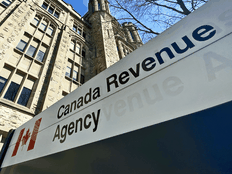EDITORIAL: Carney platform shows Poilievre was right

Article content
In the ongoing federal election, Liberal Leader Mark Carney, unable to defend the Liberal record during their lost decade in power, has stolen huge chunks of the Conservative platform.
This is nothing new for the Liberals, who routinely steal ideas from other political parties during elections before abandoning them after the election.
Here are a few examples of what this means.
It means Conservative Leader Pierre Poilievre’s opposition to the Liberals’ consumer carbon tax — while Carney was in the private sector complaining carbon taxes weren’t high enough — was the right decision, as now conceded by the Liberals who scrapped it.
During the Liberal leadership race, Carney said Canada was in a weak economic position before U.S. President Donald Trump’s tariffs hit because of runaway federal government spending and excessively high immigration targets, again conceding that Poilievre and the Conservatives were right.
Carney has promised a tax cut if he wins the election, albeit smaller than the one Poilievre has pledged and another issue where the Conservatives led and the Liberals followed, because Poilievre was talking about the need for a tax cut long before Carney came up with the idea.
Carney and the Liberals have also promised to scrap their own plan to increase capital gains taxes, which Poilievre opposed when the Liberals first announced it, demonstrating yet again that the Carney Liberals have conceded that Poilievre was right.
There are other examples, but what voters should be asking themselves is who is more likely to implement the promises they’ve made as opposed to abandoning them, post election?
Is it the Conservatives who first recommended these initiatives, or the Johnny-come-lately Liberals who later cribbed them from the Conservatives?
The Liberal record isn’t reassuring.
Remember when former PM Justin Trudeau predicted three years of modest deficits — $9.9 billion in 2016, $9.5 billion in 2017 and $5.7 billion in 2018, followed by a $1 billion surplus in 2019 — during the 2015 election that brought him to power?
What he delivered was a $19-billion deficit in 2016, another $19-billion deficit in 2017, a $14-billion deficit in 2018 and in 2019, the year he had predicted a $1 billion surplus, a $39.4-billion deficit.
All of this before the pandemic hit in 2020 — so let the buyer be aware.











Postmedia is committed to maintaining a lively but civil forum for discussion. Please keep comments relevant and respectful. Comments may take up to an hour to appear on the site. You will receive an email if there is a reply to your comment, an update to a thread you follow or if a user you follow comments. Visit our Community Guidelines for more information.